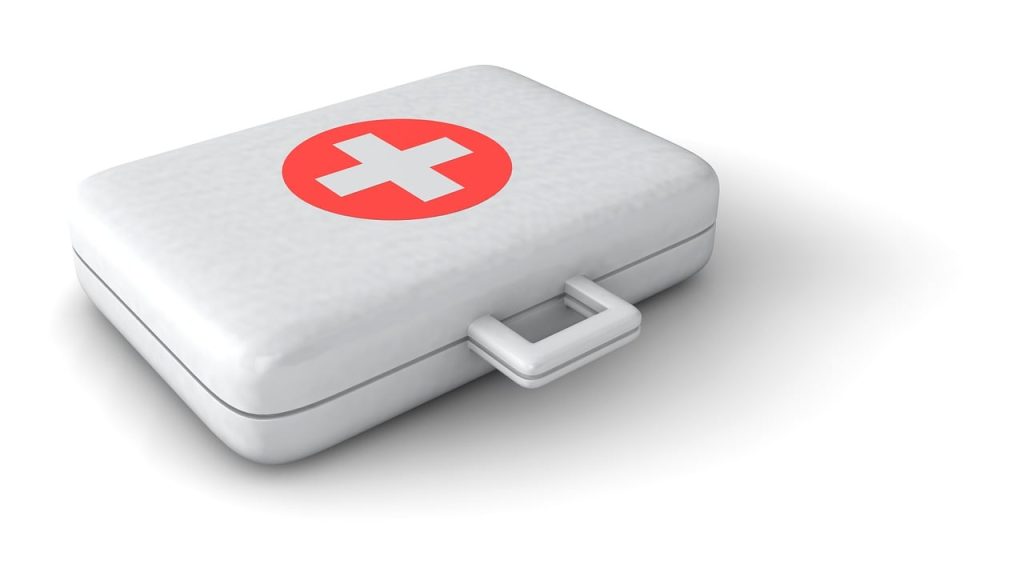Shock, sadness, and concern weigh as heavy as smoke from the California wildfires while people around the globe continue to watch the devastation. The important message to hear right now is that disaster can strike when least expected and doesn’t discriminate based on location, economic status or privilege, and that we need to prepare well for the unexpected.
In particular, the most recent fires in California may have prompted many questions and or uncertainties for you about what to do, what to take and what if this doesn’t go as pre-planned. Here we offer some basic first steps for home wellness and preparedness, focusing on what to take during an emergency, necessary documents, actions if loved ones or pets cannot be evacuated, emergency contacts in our area and emotional support resources.
What to Have Ready? Preparation begins with creating an emergency kit that includes essential supplies. One could be larger for staying in place, and another for grab-and-go emergencies. This kit should contain:
- Water: At least one gallon per person per day for at least three days.
- Non-perishable food: A three-day supply of food that does not require cooking. (Granola bars, nuts, peanut butter, dry cereal, canned tuna, etc.)
- Flashlights and batteries: To provide light during power outages.
- First aid kit: Including bandages, antiseptics, and any necessary medications.
- Multi-tool or knife: Useful for various tasks during emergencies including scissors.
- Whistle/siren: To signal for help if needed.
- Dust mask: To help filter contaminated air or illness.
- Garbage bags: For personal sanitation, collecting items, etc.
Which Items Matter? When evacuating your home, certain documents are vital to ensure your safety and to facilitate recovery after the disaster and others are irreplaceable:
- Identification documents: Such as your driver’s license or passport (Ideally you already have a photo version of these documents)
- Legal Papers: Social security cards, adoption papers, vehicle titles, home information, any paperwork related to citizenship. (Best prepare by taking photos of other paperwork so you can find numbers digitally such as your insurance policy numbers, animal pet chip numbers, etc.)
- Photo Albums: We’re talking the old paper photos that you can’t get back, not the ones you still have on your phone! If you have no idea where these are and time is running short, do not spend time looking, evacuate. (Take photos and make copies of priceless art now so you can have digitals available. It is not the same but an option.)
Having these documents organized in a waterproof/fireproof container will save time and stress during an evacuation.
What Do You Do If You Can’t Evacuate Loved Ones or Pets? In the unfortunate event that you cannot evacuate all loved ones or pets from your home:
- Secure them in a safe area: If possible, move them to a room with fewer windows away from potential fire exposure.
- Contact emergency services immediately, informing them of those who remain inside so they can prioritize rescue efforts.
Do not risk your life to save another; this can also make it harder for first responders.
What are our local numbers? In general, you can always call 2-1-1 for support and resources. In an emergency call: 9-1-1
- Orleans County Sheriff’s Department: (802) 334-3333
- Vermont State Police: (802) 334-8881
- Local Fire Departments: Check local listings and post where you can easily find it! Put FIRE, POLICE, etc., on your phone. That way if you need to call you can easily ask SIRI, or even ask someone else to find “FIRE,” in your phone.
What if you are feeling anxious? You aren’t alone! Witnessing devastating fires can take an emotional toll on individuals and families. It is important to seek support through various channels: Calling 9-8-8 can be a start or seeking out local counseling services, talking to friends and family, and being proactive about sharing your feelings. There are also so many hotlines where you can talk to someone in real time.
- Hotlines: National hotlines like the National Disaster Distress Helpline (1-800-985-5990) offer immediate support for those struggling emotionally after disasters.
In conclusion, preparing for emergencies involves careful consideration and action! When we see even the rich and famous now sifting through ashes, we can’t assume we are immune from fires, or floods, or anything. What can we do? We can learn well and prepare well!


